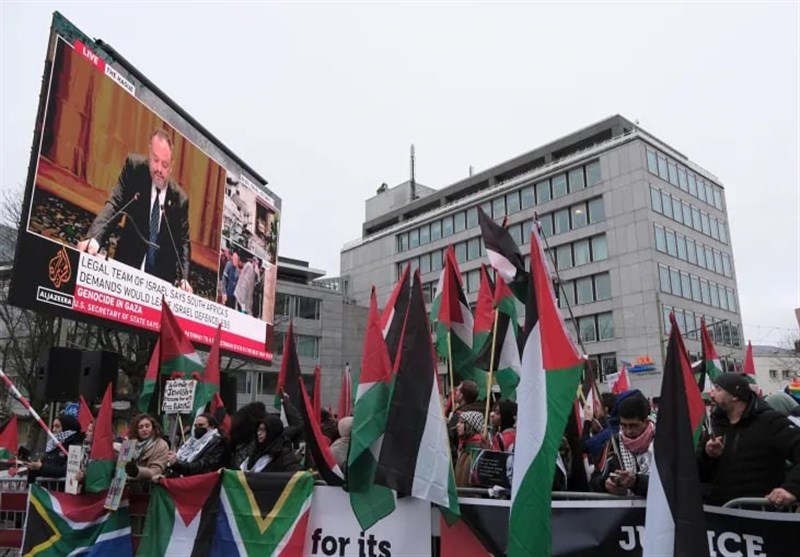The top UN Court’s ruling on Israel’s Occupation of Palestinian Territories could “change the political calculus in the West” and render Tel Aviv “more isolated in international relations,” according to legal experts.
The International Court of Justice (ICJ), based in The Hague, Netherlands, will issue its advisory opinion on the legal repercussions of Israeli actions in the Occupied Palestinian Territories this Friday. This follows an 18-month process initiated after the UN General Assembly requested its input in 2022.
A total of 52 countries presented their arguments at the ICJ, with a majority supporting the view that Israel’s actions in the Occupied Territories violate international law.
The Court’s opinion will not be legally binding but carries immense political significance.

Gerhard Kemp, a professor at the University of the West of England, Bristol, believes the “more likely outcome is an opinion that Israel is unlawfully occupying the Palestinian Territories.” “In addition, there is a chance that the ICJ will express an opinion on Israel’s policies of apartheid imposed on the Palestinian people in the OPT (Occupied Palestinian Territory)."
He added that this will benefit “the cause of Palestinian self-determination politically and diplomatically”.“It will not be well received in Israel. In the short or even medium term, I don’t think the advisory opinion will have a direct impact on Israel’s behavior, but it may help to change the political calculus in the West."
Marco Longobardo, an international law expert at the University of Westminster, said the ICJ opinion “will be a powerful instrument to clarify the legal framework of the Israeli occupation”.
“More than an issue of permanency, the crux is whether the Occupation is lawful. If the Court says that the entire Occupation is unlawful, this will make it more difficult for third states to support the ongoing Occupation by Israel,” he said.
“Dealing with Israeli practice in the Occupied Territory might become ‘radioactive’ in international relations. More states may decide not to support Israel, particularly in the fields of economic and defense cooperation.”
While Tel Aviv “will likely ignore the opinion”, it would still “render Israel more isolated in international relations”, he asserted.

Longobardo explained that the top UN Court will address “the legality of the entire Occupation of the Palestinian Territory by Israel in light of international humanitarian law, international human rights law, the principle of self-determination of peoples and other rules of international law.”
It will also discuss the “consequences of this potentially illegal Occupation for third states and the UN,” he said.
“Formally speaking, the opinion is not binding on states since it is not directed to states. However, the legal findings of an advisory opinion have significant authority since the opinion is rendered by the … principal judicial organ of the UN,” he emphasized.
Kemp built on that by stressing that ICJ opinions “can be persuasive and may influence the political and diplomatic behavior of states.”
As an example, he cited the June 1971 advisory opinion by the ICJ that South Africa’s continued presence in Namibia was illegal and it was obligated to withdraw immediately.
“It is believed (including by Namibia itself) that the ICJ’s advisory opinion in that case contributed to the international pressure that eventually led to the independence of Namibia, free from South African occupation,” he said.

Kemp expects the ICJ to say “something substantive about whether Israel is practicing and imposing a system of apartheid on the people of Palestine in the Occupied Territories.”
“This will be the first time that the ICJ will prominently address the question of apartheid in the context of Palestine,” he said.
The issue was “prominently argued by South Africa and Namibia in their submissions to the ICJ,” he said.
“South Africa submitted that the prohibition of apartheid is a peremptory norm under international law, and I hope the ICJ will say something about this and how apartheid affects the people of Palestine,” said Kemp.
“Indeed, the current conflict in Gaza, the alleged ongoing genocide, these are all connected to the broader systemic issues of Occupation and apartheid.”
In the broader picture, the legal findings will also “have an impact on proceedings over individual and state responsibility before the International Criminal Court and the ICJ,” he added.
Ashkan Salehian

